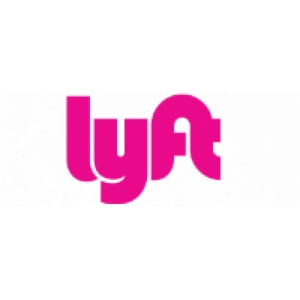Software Engineer, Machine Learning
Lyft, Inc.-
Job Type
Full Time -
Experience
4-6 year -
Salary
$124,000 - $155,000 / Year -
Location
San Francisco, CA, USA -
Job Function
-
Industry
Information Technology -
Qualification
Key Skills
AWS, Azure, Data science techniques, Google Cloud Platform (GCP), Machine learning techniques, PyTorch, SPARK Programming, SQL, TensorFlow
Job Description
At Lyft, our mission is to improve people’s lives with the world’s best transportation. To do this, we start with our own community by creating an open, inclusive, and diverse organization. Data and Machine Learning are at the heart of our products and decision-making. We’re looking for passionate, driven engineers to build systems that empower machine learning models to make our products predictive, personalized, and adaptive. We’re looking for someone who is passionate about solving problems with data, building reliable ML systems, and is excited about working in a fast-paced, innovative, and collegial environment.
As a machine learning software engineer, you will be developing production machine learning models that drive safer touch points and higher quality support experiences for both riders and drivers. You will be working on a wide array of challenges ranging from large scale distributed model training, large language model development, automating machine learning model lifecycle, implementing model monitoring, enabling reinforcement learning and much more. You will work with modelers across the company and build infrastructure to incorporate the rapid developing needs in various domains.
Responsibilities:
- Partner with Machine Learning Engineers, Data Scientists, Software Engineers and Product Managers to develop advanced systems for business and user impact
- Collaborate with cross-functional teams to understand requirements and translate them into technical solutions
- Evaluate when to build and when to reuse existing components including open source solutions
- Continuously research and stay updated with the latest advancements in machine learning and natural language processing
- Participate in code reviews, provide constructive feedback, and uphold best practices in ML engineering
- Create and maintain comprehensive documentation for models, experiments, and processes
- Write production quality code that scales with use
- Help establish roadmap and architecture based on technology and our needs
Experience:
- S., M.S., or Ph.D. in Computer Science and experience in distributed systems and machine learning
- Passion for building scalable and extensible solutions for machine learning development and productionisation towards short term and long term business and user impact
- Proficiency in Python, Golang, or other programming language
- Excellent communication skills
- Strong understanding of Machine Learning fundamentals, including supervised learning, large language models, forecasting, recommendation systems and reinforcement learning
Bonus Qualifications:
- Solid software engineering skills and experience with popular ML software libraries (scikit-learn, pandas) and data munging tools (SQL, Spark). Experience with deep learning frameworks (e.g. PyTorch, Tensorflow) is a plus.
- Familiarity working with cloud services (AWS, Azure, GCP, etc) and containerization with Kubernetes.
Benefits:
- Great medical, dental, and vision insurance options
- Mental health benefits
- Family building benefits
- In addition to 12 observed holidays, salaried team members have unlimited paid time off, hourly team members have 15 days paid time off
- 401(k) plan to help save for your future
- 18 weeks of paid parental leave. Biological, adoptive, and foster parents are all eligible
- Pre-tax commuter benefits
- Lyft Pink - Lyft team members get an exclusive opportunity to test new benefits of our Ridership Program
Lyft is an equal opportunity/affirmative action employer committed to an inclusive and diverse workplace. All qualified applicants will receive consideration for employment without regards to race, color, religion, sex, sexual orientation, gender identity, national origin, disability status, protected veteran status or any other basis prohibited by law. We also consider qualified applicants with criminal histories consistent with applicable federal, state and local law.
Company Info.
Lyft, Inc.Lyft, Inc. is an American company offering mobility as a service, ride-hailing, vehicles for hire, motorized scooters, a bicycle-sharing system, rental cars, and food delivery in the United States and select cities in Canada. Lyft sets fares, which vary using a dynamic pricing model based on local supply and demand at the time of the booking and are quoted to the customer in advance, and receives a commission from each booking. Lyft is the second
-
IndustryVehicle for hire
-
No. of Employees4,400
-
LocationSan Francisco, CA, USA
-
Website
-
Jobs Posted
